IAWF Scholarship Recipients – Where are they now?
We reached out to our past recipients to see what they were up to now; as you will see from the following they are doing great, with successful careers, families and many exciting adventures! We are so proud of them and wish them all continued success.
Each year the International Association of Wildland Fire (IAWF) awards two graduate-level scholarships typically valued at $3,000 USD to Master of Science or Ph.D. students studying wildland fire or wildland fire-related topics. Student submitted essays are evaluated by an international panel of fire science experts and one award recipient is chosen for the Masters level and one for the Doctoral level. The IAWF has been presenting this award annually to members of the fire science community since 2007.
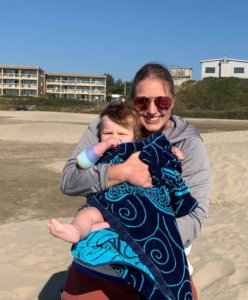 2011 RECIPIENT
2011 RECIPIENT
ALEXIS WALDRON
Ph. D. student, Oregon State University, Corvallis, OR, USA
I am currently a human performance specialist with the U.S. Forest Service. I have been very fortunate that I have been able to use much of the research I did while I was earning my degree – which IAWF helped support – to conduct leadership, resiliency and other personal development trainings with wildland firefighters and larger units within the Forest Service and other outdoor based organizations. This research has served as a foundation for other work that has been influential in how the wildland fire community thinks about leadership and its development. It has been so rewarding and exciting to receive feedback over the years on the difference it has made for people in the way they are able to show up for their work and lives to do what matters most. These days I don’t find myself out on the fireline, but love hanging out with my husband, three-year-old and nine-month-old by bodies of water near the ocean, lakes, ponds, rivers, and puddles. Thanks IAWF!!
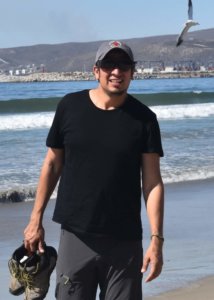 2016 RECIPIENT
2016 RECIPIENT
HÉCTOR LEONARDO MARTÍNEZ TORRES (LEO)
PhD Candidate, National Autonomous University of Mexico, Mexico City, Mexico
I write from a small town in west-central Mexico where I have lived since I finished my PhD in October 2018. For now, I am very fortunate to participate in a project that seeks to bring university education to places and people that have long been excluded from this type of education in my country. I have seen, as never before, the enormous effort that many people must make in order to get study. Literally every peso (dollar, euro, rupee, etc.) can make a difference. That is why I think that the scholarship program of our beloved IAWF is perhaps the noblest, the most necessary … and yes, I think it should be expanded! The acknowledgments at the end of the academic papers are usually very cold and short, so I take this space to thank the entire IAWF community. As I already said, financial aid is important, but IAWF goes much further than that: The friends that you make, the meetings, congresses, the academic opportunities, and more. For me, it is an honor to be part of this community, which I hope will continue to grow and grow, in number and diversity (more academic disciplines, more countries, more worldviews, more voices are necessary). Really, thank you so much.
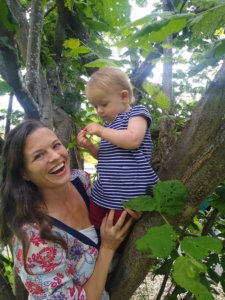 2010 RECIPIENT
2010 RECIPIENT
BROOKE CASSELL, PHD
MA Student, University of Washington, Seattle, Washington
I finished up my PhD in landscape and fire ecology at Portland State University in 2018. Since then I started my career in scientific publishing as a technical editor for Freshwater Science and as a writing coach and consultant for academic and science writers. I am absolutely thrilled to be working with writers from across the globe and all stages of their academic and research careers to tell compelling stories about why their work is so important (and I get to put on my grammar-nerd hat, which also makes me very happy). IAWF made a big difference in this path. My first ever poster presentation was at the IAWF 3rd Fire Behavior and Fuels Conference in 2010, and my IAWF scholarship that year helped cement my path firmly in fire research through helping fund my master’s work in fire history reconstruction in Mexican pines. I went on to incorporate landscape modeling and social science to paint a picture of potential futures, and how local communities perceive them, in fire-prone forests in eastern Oregon. My favorite Covid-era activities have been snuggling with my baby girl and getting out for hikes (smoke permitting), and I am extra excited that chanterelle-hunting season is on the horizon.
 2012 RECIPIENT
2012 RECIPIENT
DR. RACHEL ANNE CARTER, PHD
LaTrobe University (PhD Candidate), Victoria, Australia
I am the Director of The Geneva Association’s Cyber programme. The Geneva Association is the leading international think tank of the insurance industry. Under my leadership, this research programme aims to help stakeholders understand cyber risks, and in particular, to assist the insurance industry in devising ways to respond effectively to cyber risks as they evolve. I co-founded the Journal of Terrorism and Cyber Insurance. I also worked in the international policy environment in the OECD and the corporate sector with a number of global insurers in their London headquarters. I also experienced the public private environment through my experience working for a government backed terrorism insurance pool. My roles were predominantly in research, development, innovation and strategy. I have a variety of research, strategy, underwriting, policy, consulting, regulatory and corporate experience, with specialties in catastrophe risk (re)insurance solutions and disaster-risk financing options. I am a regular speaker at international conferences and have even spoken at the World Economic Forum (during a special focus cyber event). In addition to working in the areas of natural catastrophe, I expanded my research and practical experience into other potential disaster risk areas including terrorism and cyber and cyber terrorism. I have a desire to use leadership, innovation and education to help promote economic protection of lives, businesses and communities through sustainable insurance solutions. The focus is on elucidating the risk and encouraging society, through cross sectorial collaboration and efforts to educate the public, to become more resilient. The scholarship received through the International Association of Wildland Fire enabled me to complete my PHD in Law (Insurance). My PhD research was presented as evidence in Australian Parliament (Senate Economic References Committee) on promoting insurability for flood prone areas within Australia. I coauthored a book and was a contributing author to a multitude of academic research papers and reports. I am hoping that in due course, I can work with a number of practitioners to transform my PhD research into an operative multi-peril natural disaster insurance scheme to help Australians ensure they have adequate levels of insurance cover.
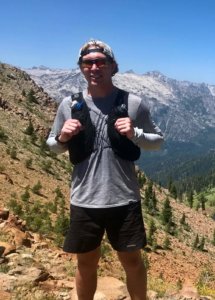 2015 RECIPIENT
2015 RECIPIENT
WILL OLSEN
Masters student, Michigan Technological University’s School of Forest Resources and Environmental Science
I graduated from Michigan Technological University in 2016 with my MS in Applied Ecology, with a research focus on post-fire erosion and the effects of salvage logging on water resources, supported in part by the IAWF scholarship. I started in April 2017 as the Forest Practice Monitoring Specialist in the Watershed Protection Program of the California Department of Forestry and Fire Protection, and I am currently a Senior Environmental Scientist in this position with the Department. I serve as lead technical analyst on monitoring projects related to timber harvesting on non-Federal lands in the state of California. I have led development of monitoring projects and served as lead author on reports related to post-fire salvage logging operations, and forestry operations related to increasing wildfire resilience. I also serve as a GIS specialist for technical analysis on post-fire state Watershed Emergency Response Teams following large wildfire events, including for the 2017 Thomas Fire, 2018 Carr Fire, and several of the 2020 summer wildfires in California. I have continued to focus on the same research studies that IAWF supported during my graduate studies, while enjoying some of the best mountainous wilderness found in far northern California in my free time.
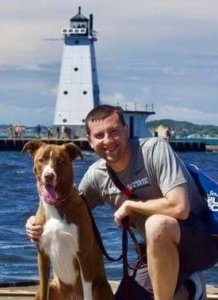 2017 RECIPIENT
2017 RECIPIENT
MARSHALL STAGEBERG
Master of Science, Geography, Michigan State University
I currently am a GIS/Data analyst for the environmental consulting firm, Antea Group. I am working on publishing the work I was able to accomplish due to the help of the IAWF Scholarship and hope to continue the work moving forward!
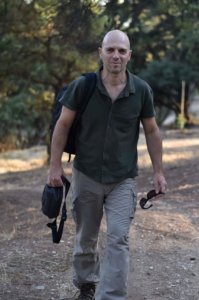 2014 RECIPIENT
2014 RECIPIENT
MILTIADIS ATHANASIOU
PhD student, National and Kapodistrian University of Athens, Greece
I am working as a Research Affiliate with the Institute of Mediterranean Forest Ecosystems in Athens, Greece. My work includes documentation of wildfire behaviour and firefighting in the field, followed by behaviour analysis in the office using GIS, and analysis of safety considerations, especially for extreme fires. Among the fires I have studied is the tragic wildfire of July 23rd, 2018 in Northeastern Attica, Greece, which caused 102 fatalities. I am currently working on a book that will include all the information I have collected, the analyses I have carried out with other colleagues and the conclusions that will help avoid similar accidents in the future. Fuel measurement and modelling, fire risk assessment and prediction and firefighting effectiveness and safety are additional fields I work on. Regarding safety I have reconstructed and analyzed many past firefighting accidents that have taken place in Greece and published the lessons learned. In parallel with my research activities, I train professional and volunteer firefighters on wildfire behaviour, hazards, human factors, safety and health on the fire line, and forest firefighting tactics, I develop and conduct full-scale wildfire drills with first responders and teach citizens how to prepare their houses and protect themselves. One example is my participation in a team of international and Greek fire experts who, in April 2019, delivered a week-long high level course on extreme fire behavior, Wildland Urban Interface fire dynamics and impact, as well as firefighter safety at the Hellenic Fire Academy in Kifissia, Athens, Greece. The trainees were 25 selected officers of the Hellenic Fire Corps. On top of the above, I try to promote the use of fire in fire prevention and suppression in Greece, which for the time is not legally recognized.
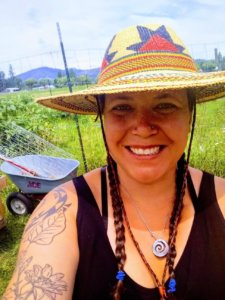 2016 RECIPIENT
2016 RECIPIENT
MONIQUE WYNECOOP
Master of Science, Fire Science Program, College of Natural Resources, University of Idaho
I am working in the ancestral homelands of my husband and children on the Colville National Forest as the Fire Ecologist for NE WA Region 6 and also am working part-time with the Northern Rockies Fire Science Network as Fire Ecologist/ Tribal Liaison. The scholarship has opened doors that have helped connect me with many groups and professionals with a similar passion for helping tribal communities, and has led to me working on projects with the Northern Rockies Fire Science Network and with groups, such as the Northwest Climate Science Adaptation Center, NW Scientific Association, Journal of Native Sciences, and others that have helped me pursue my passion of working to promote improved collaboration and communication between communities and tribal and non-tribal agencies.
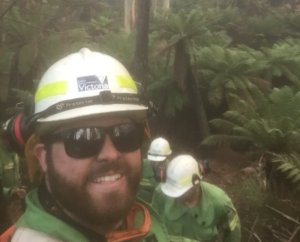 2019 RECIPIENT
2019 RECIPIENT
SAMUEL HILLMAN
PhD Candidate, RMIT University, Australia
The IAWF scholarship has provided the catalyst for collaboration with world leading remote sensing experts in Australia and the University of British Columbia in Canada (UBC), and fire experts at the US Forest Service’s Rocky Mountain Research Lab in Missoula, Montana. The scholarship contributed to my travel expenses which enabled me to spend time at UBC and in Missoula in 2019. My project investigates the utility of 3D point clouds captured from drones to measure fuel hazard and vertical connectivity in fire prone landscapes around the world. The IAWF scholarship allowed me to collect new data in multiple locations: three forests in central British Columbia and conifer forests in the Lubrecht Experimental Forest in Missoula. This will complement data already obtained in the savannah grass lands of the Northern Territory and Eucalypt forests of South East Australia. The scholarship provided me with an opportunity to work with world-leading scientists and experienced operational practitioners. The results of this project will form a chapter of my PhD, and more broadly enhance the way we measure and interpret fuel hazard information. I also work part-time with Forest Fire Management Victoria, in developing fuel monitoring applications to capture hazard and moisture information across the state. The importance of linking research with operations to improve fire management was further reinforced during the 2019-20 fire season, which resulted in severe environmental, social and economic impacts. I look forward to continuing my involvement with the IAWF and being involved in connecting research with operations.
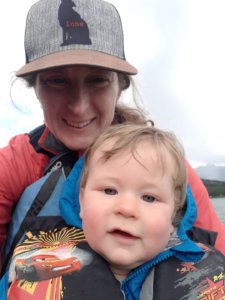 2009 RECIPIENT
2009 RECIPIENT
KELSY GIBOS
MSc.F. student, University of Toronto, Toronto, Ontario, Canada
I’m officially 15 years in the wildfire business now! After completing my MSc at the University of Toronto, I landed a great gig analyzing fire behaviour following the Black Saturday Fires in Victoria, Australia. My experiences in the sun-burnt country have changed my perspectives on fire, and I’m positive I would not have had this opportunity without the scholarship funding support that I received. I learned so much about fire behaviour in a land where trees explode, weather systems spin in a reverse direction, and fire burns at night. The friendships and professional connections I made over there will last a lifetime! In 2014, I returned to Canada and worked 5 years as a Wildfire Management Specialist in the Edson Wildfire Management Area where I analyzed landscape scale fire risk and supported wildfire operations as a Fire Behaviour Analyst. Recently I accepted a new adventure as a Wildfire Training Specialist and have moved my family to Hinton, Alberta where we are loving living in the Rockies. I am the chair of the national Fire Behaviour Specialist Course, and I get to share my passion and teach fire behaviour to new recruits all the way up to the advanced level. I recently added the cutest little dude to my family, so it’s the first fire season I’ve taken off in a while. Sullivan is now 9 months old and we’re having a blast playing outside with our 2 dogs Twigs and Huckleberry. Thank you IAWF for your support in my professional development… I think I have absolutely the best job ever!
